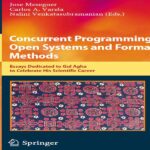در شهر كوفه در سال 37 هجری، هنگام حركت دادن مردم به سوی صفّین و جنگ با شامیان، ایراد فرمود.
فرمان خدا قضای حتمی و حكمت، و خشنودی او مایه امنیّت و رحمت است؛ از روی علم، حكم می كند و با حلم و بردباری میبخشاید. خدایا! سپاس تو راست بر آنچه می گیری، و عطا میفرمایی، و شفا میدهی یا مبتلا میسازی. سپاسی كه تو را رضایت بخش ترین، محبوب ترین، و ممتازترین باشد، سپاسی كه آفریدگانت را سرشار سازد، و تا آنجا كه تو بخواهی تداوم یابد، سپاسی كه از تو پوشیده نباشد، و از رسیدن به پیشگاهت باز نماند، سپاسی كه شمارش آن پایان نپذیرد، و تداوم آن از بین نرود. خدایا! حقیقتِ بزرگی تو را نمیدانیم، جز آن كه می دانیم تو زنده ای و احتیاج به غیر نداری، خواب سنگین یا سبك تو را نمیرباید، هیچ اندیشه ای به تو نرسد و هیچ دیده ای تو را ننگرد، اما دید هها را تو می نگری، و اعمال انسانها را شماره فرمایی، و قدمها و موی پیشانی ها «زمام امور همه » به دست تو است، خدایا آنچه را كه از آفرینش تو می نگریم، واز قدرت تو به شگفت می آییم و بدان بزرگی قدرت تو را می ستاییم، بسی ناچیزتر است در برابر آنچه كه از ما پنهان، و چش مهای ما از دیدن آنها ناتوان، و عقل های ما از درك آنها عاجز است، و پرده های غیب میان ما و آنها گسترده می باشد. پس آن كس كه دل را از همه چیز تهی سازد، و فكرش را به كار گیرد تا بداند كه چگونه عَرش قدرت خود را برقرار ساخته ای و پدیده را چگونه آفریده ای؟. و چگونه آسمانها و كرات فضایی را در هوا آویخته ای؟ و زمین را چگونه بر روی امواج آب گسترد های؟ نگاهش حسرت زده، و عقلش مات و سرگردان، و شنواییش آشفته، و اندیشه اش حیران می ماند. به گمان خود ادّعا دارد كه به خدا امیدوار است! به خدای بزرگ سوگند! كه دروغ میگوید، چه می شود او را كه امیدواری در كردارش پیدا نیست؟ پس هر كس به خدا امیدوار باشد باید، امید او در كردارش آشكار شود. هر امیدواریی جز امید به خدای تعالی ناخالص است و هر ترسی جز ترس از خدا نادرست است. گروهی در كارهای بزرگ به خدا امید بسته و در كارهای كوچك به بندگانِ خدا روی میآورند؛ پس حقّ بنده را ادا میكنند و حقّ خدا را بر زمین می گذارند، چرا در حقّ خدای متعال كوتاهی میشود و كمتر از حقّ بندگان رعایت میگردد؟، آیا می ترسی در امیدی كه به خدا داری دروغگو باشی؟ یا او را در خور امید بستن نمی پنداری؟ امیدوار دروغین اگر از بنده خدا ترسناك باشد، حقّ او را چنان رعایت كند كه حقّ پروردگار خود را آن گونه رعایت نمی كند، پس ترس خود را از بندگان آماده، و ترس از خداوند را وعده ای انجام نشدنی میشمارد، و اینگونه است كسی كه دنیا در دیده اش بزرگ جلوه كند، و ارزش و اعتبار دنیادر دلش فراوان گردد، كه دنیا را بر خدا مقدّم شمارد، و جز دنیا به چیز دیگری نپردازد و بنده دنیا گردد. برای تو كافی است كه راه و رسم زندگی پیامبر اسلام (ص) را اطاعت نمایی،تا راهنمای خوبی برای تو در شناخت بدیها و عیبهای دنیا و رسوای یها و زشتی های آن باشد، چه اینكه دنیا از هر سو بر پیامبر (ص) بازداشته و برای غیر او گسترانده شد، از پستان دنیا شیر نخورد، و از زیورهای آن فاصله گرفت. اگر میخواهی دومی را، موسی (ع)و زندگی او را توصیف كنم، آنجا كه می گوید: « پروردگارا! هر چه به من از نیكی عطا كنی نیازمندم » . به خدا سوگند! موسی (ع) جز قرص نانی كه گرسنگی را برطرف سازد چیز دیگری نخواست، زیرا موسی (ع) از سبزیجات زمین میخورد، تا آنجا كه بر اثر لاغری و آب شدن گوشت بدن، سبزی گیاه از پشت پرد هی شكم او آشكار بود. و اگر می خواهی سومی را، حضرت داوود (ع) صاحب نی های نوازنده و خواننده بهشتیان را الگوی خویش سازی، كه با هنر دستان خود از لیف خرما زنبیل میبافت و از همنشینان خود می پرسید: چه كسی از شما این زنبیل را می فروشد؟ و با بهای آن به خوردن نان جوی قناعت میكرد. و اگر خواهی از عیسی بن مریم (ع) بگویم، كه سنگ را بالش خود قرار می داد، لباس پشمی خشن به تن می كردو نان خشك میخورد، نان خورشت او گرسنگی و چراغش در شب ماه و پناهگاه زمستان او شرق و غرب زمین بود. میوه و گُلِ او سبزیجاتی بودكه زمین برای چهارپایان می رویاند. زنی نداشت كه او را فریفته خود سازد، فرزندی نداشت تا او را غمگین سازد، مالی نداشت تا او را سرگرم كند، و آز و طمعی نداشت تا او را خوار و ذلیل نماید، مركب سواری او دو پایش و خدمتگزار وی، دستهایش بود. پس به پیامبر پاكیزه و پاكت اقتدا كن، كه راه و رسم او الگویی است برای الگو طلبان، و مایه فخر و بزرگی است برای كسی كه خواهان بزرگواری باشد، و محبوب ترین بنده نزد خدا كسی است كه از پیامبرش پیروی كند، و گام بر جایگاه قدم او نهد. پیامبر (ص) از دنیا چندان نخورد كه دهان را پركند،و به دنیا با گوشه چشم نگریست،دو پهلویش از تمام مردم فرو رفته تر، و شكمش از همه خالیتر بود دنیا را به او نشان دادند، امّا نپذیرفت، و چون دانست خدا چیزی را دشمن می دارد آن را دشمن داشت، و چیزی را كه خدا خوار شمرده، آن را خوار انگاشت، و چیزی را كه خدا كوچك شمرده كوچك و ناچیز می دانست. اگر در ما نباشد جز آن كه آنچه را خدا و پیامبرش دشمن می دارند، دوست بداریم، یا آنچه را خدا و پیامبرش كوچك شمارند، بزرگ بداریم، برای نشان دادن دشمنی ما با خدا، و سرپیچی از فرمانهای او كافی بود!. و همانا پیامبر «كه درود خدا بر او باد » بر روی زمین مینشست و غذا می خورد، و چون برده، ساده می نشست، و با دست خود كفش خود را وصله می زد، و جامه خود را با دست خود می دوخت، و بر الاغ برهنه می نشست، و دیگری را پشت سر خویش سوار می كرد. پرده ای بر در خانه او آویخته بود كه نقش و تصویرها در آن بود، به یكی از همسرانش فرمود، « این پرده را از برابر چشمان من دور كن كه هرگاه نگاهم به آ ن می افتد، به یاد دنیا و زینتهای آن می افتم. » پیامبر (ص) با دل از دنیا روی گرداند، و یادش را از جان خود ریشه كن كرد، و همواره دوست داشت تا جاذبه های دنیا از دیدگانش پنهان ماند، و از آن لباس زیبایی تهیه نكند و آن را قرارگاه دائمی خود نداند، و امید ماندن در دنیا نداشته باشد، پس یاد دنیا را از جان خویش بیرون كرد، و دل از دنیا بركند، و چشم از دنیا پوشاند، و چنین است كسی كه چیزی را دشمن دارد، خوش ندارد به آن بنگرد، یا نام آن نزد او بر زبان آورده شود. در زندگانی رسول خدا (ص) برای تو نشانه هایی است كه تو را به زشتیها و عیبهای دنیا راهنمایی كند، زیرا پیامبر (ص) با نزدیكان خود گرسنه به سر می برد، وبا آنكه مقام و منزلت بزرگی داشت، زینتهای دنیا از دیده او دور ماند. پس تفكّر كنند های باید با عقل خویش به درستی اندیشه كند كه آیا خدا محمد (ص) را به داشتن این صفتها اكرام فرمود یا او را خوار كرد؟ اگر بگوید خوار كرد، دروغ گفته و بُهتانی بزرگ زده است، و اگر بگوید: او را اكرام كرد، پس بداند، خدا كسی را خوار شمرد كه دنیا را برای او گستراند و از نزدیكترین مردم به خودش دور نگهداشت. پس پیروی كننده باید از پیامبر (ص) پیروی كند، و به دنبال او راه رود، و قدم بر جای قدم او بگذارد، وگرنه از هلاكت ایمن نمیباشد،كه همانا خداوند، محمّد (ص) را نشانه قیامت و مژده دهنده بهشت و ترساننده از كیفر جهنّم قرار داد. او با شكمی گرسنه از دنیا رفت و با سلامت جسم و جان وارد آخرت شد، و كاخهای مجلّل نساخت «سنگی بر سنگی نگذاشت » تا جهان را ترك گفت، و دعوت پروردگارش را پذیرفت. وه! چه بزرگ است منّتی كه خدا با بعثت پیامبر (ص) بر ما نهاده، و چنین نعمت بزرگی به ما عطا فرموده. رهبر پیشتازی كه باید او را پیروی كنیم و پیشوایی كه باید راه او را تداوم بخشیم. به خدا سوگند! آن قدر این پیراهن پشمین را وصله زدم، كه از پینه كننده آن، شرمسارم. یكی به من گفت: «آیا آن را دور نمیافكنی؟ ». گفتم: از من دور شو، صبحگاهان رهروان شب ستایش میشوند.
Praise of Allah
Allah’s verdict is judicious and full of wisdom. His pleasure implies protection and mercy. He decides with knowledge and forgives with forbearance. O’ my Allah! Praise be to Thee for what Thou takest and givest and for that from which Thou curest or with which Thou afflictest; praise which is the most acceptable to Thee, the most like by Thee and the most dignified before Thee; praise which fills all Thy creation and reaches where Thou desirest; praise which is not veiled from Thee and does not end, and whose continuity does not cease. Greatness of Allah We do not know the reality of Thy greatness except that we know that thou art Ever-living and Self-subsisting by Whom all things subsist. Drowsiness or sleep do not overtake Thee, vision does not reach Thee and sight does not grasp Thee. Thou seest the eyes and countest the ages. Thou holdest (people as slaves) by foreheads and feet. We see Thy creation and wonder over it because of Thy might, and describe it as (a result of) Thy great authority; whereas what is hidden from us, of which our sight has fallen short, which our intelligence has not attained, and between which and ourselves curtains of the unknown have been cast, is far greater. He who frees his heart (from all other engagements) and exerts his thinking in order to know how Thou established Thy throne, how Thou created Thy creatures, how Thou suspended the air in Thy skies and how Thou spread Thy earth on the waves of water, his eyes would return tired, his intelligence defeated, his ears eager and his thinking awander. A part of the same sermon about hope and fear in Allah. He claims according to his own thinking that he hopes from Allah. By Allah, the Great, he speaks a lie. The position is that his hope (in Allah) does not appear through his action although the hope of every one who hopes is known through his action. Every hope is so, except the hope in Allah, the Sublime, if it is impure; and every fear is established except the fear for Allah if it is unreal. He hopes big things from Allah and small things from men but he gives to man (such consideration as) he does not give to Allah. What is the matter with Allah, glorified be His praise? He is accorded less (consideration) than what is given to His creatures. Do you ever fear to be false in your hope in Allah? Or do you not regard Him the centre of your hope? Similarly, if a man fears man he gives him (such consideration) out of his fear which he does not give to Allah. Thus, he has made his fear for men ready currency while his fear from the Creator is mere deferment or promise. This is the case of every one in whose eye this world appears big (and important) and in whose heart its position is great. He prefers it over Allah, so he inclines towards it, and becomes its devotee. The example of the Holy Prophet Certainly, in the Prophet of Allah (peace and blessing of Allah be upon him and his progeny) was sufficient example for you and a proof concerning the vices of the world, its defects, the multitude of its disgraces and its evils, because its sides had been constrained for him, while its flanks had been spread for others; he was deprived of its milk and turned away from its adornments. The example of Musa (Moses) If you want, I will, as a second example, relate to you concerning Musa, the Interlocutor of Allah (p.b.u.h.) when he said: O’ Allah! I need whatever good Thou mayest grant me (Qur’an, 28:24). By Allah, he asked Him only for bread to eat because he was used to eating the herbs of the earth, and the greenness of the herbs could be seen from the delicate skin of his belly due to his thinness and paucity of his flesh. The example of Dawud (David) If you desire I can give you a third example of Dawud (p.b.u.h.). He is the holder of the Psalms and the reciter among the people of Paradise. He used to prepare baskets of date palm leaves with his own hands and would say to his companions: “Which of you will help me by purchasing it?” He used to eat barley bread (bought) out of its price. The example of `Isa (Jesus) If you desire I will tell you about `Isa (p.b.u.h.) son of Maryam (Mary). He used a stone for his pillow, put on coarse clothes and ate rough food. His condiment was hunger. His lamp at night was the moon. His shade during the winter was just the expanse of earth eastward and westward. His fruits and flowers were only what grows from the earth for the cattle. He had no wife to allure him, nor any son to give grief, nor wealth to deviate (his attention), nor greed to disgrace him. His two feet were his conveyance and his two hands his servant. Following the example of the Holy Prophet You should follow your Prophet, the pure, the chaste, may Allah bless him and his descendants. In him is the example for the follower, and the consolation for the seeker of consolation. The most beloved person before Allah is he who follows His Prophet and who treads in his footsteps. He took the least (share) from this world and did not take a full glance at it. Of all the people of the world he was the least satiated and the most empty of stomach. The world was offered to him but he refused to accept it. When he knew that Allah, the Glorified, hated a thing, he too hated it; that Allah held a thing low, he too held it low; that Allah held a thing small, he too held it small. If we love what Allah and His Prophet hate and hold great what Allah and His prophet hold small that would be enough isolation from Allah and transgression of His commands. The Prophet used to eat on the ground, and sat like a slave. He repaired his shoe with his hand, and patched his clothes with his hand. He would ride an unsaddled ass and would seat someone behind him. If there was a curtain on his door with pictures on it he would say to one of his wives. “O’ such-and-such, take it away out of my sight because if I look at it I recall the world and its allurements.” Thus, he removed his heart from this world and destroyed its remembrance from his mind. He loved that its allurements should remain hidden from his eye so that he should not secure good dress from it, should not regard it a place of stay and should not hope to live in it. Consequently, he removed it from his mind, let it go away from his heart and kept it hidden from his eyes. In the same way he who hates a thing should hate to look at it or to hear about it. Certainly there was in the Prophet of Allah all that would apprise you of the evils of this world and its defects, namely that he remained hungry along with his chief companions, and despite his great nearness the allurements of the world remained remote from him. Now, one should see with one’s intelligence whether Allah honoured Muhammad (the peace and blessings of Allah be upon him and his descendants) as a result of this or disgraced him. If he says that Allah disgraced him, he certainly lies and perpetrates a great untruth. If he says Allah honoured him, he should know that Allah dishonoured the others when He extended the (benefits of the) world for him but held them away from him who was the nearest to Him of all men. Therefore, one should follow His Prophet, tread in his footsteps and enter through his entrance. Otherwise he will not be safe from ruin. Certainly, Allah made Muhammad (the peace and blessing of Allah be upon him and his descendants) a sign for the Day of Judgement. a conveyor of tidings for Paradise and a warner of retribution. He left this world hungry but entered upon the next world safe. He did not lay one stone upon another (to make a house) till he departed and responded to the call of Allah. How great is Allah’s blessing in that He blessed us with the Prophet as a predecessor whom we follow and a leader behind whom we tread. The example of himself By Allah, I have been putting patches in my shirts so much that now I feel shy of the patcher. Someone asked me whether I would not put it off, but I said, “Get away from me.” Only in the morning do people (realised the advantage of and) speak highly of the night journey.
فایل صوتی فارسی مربوط به این خطبه را از لینک ذیل دانلود نمایید:
Download: Nahjul-Balagah-Sermon-160





































نظرات کاربران